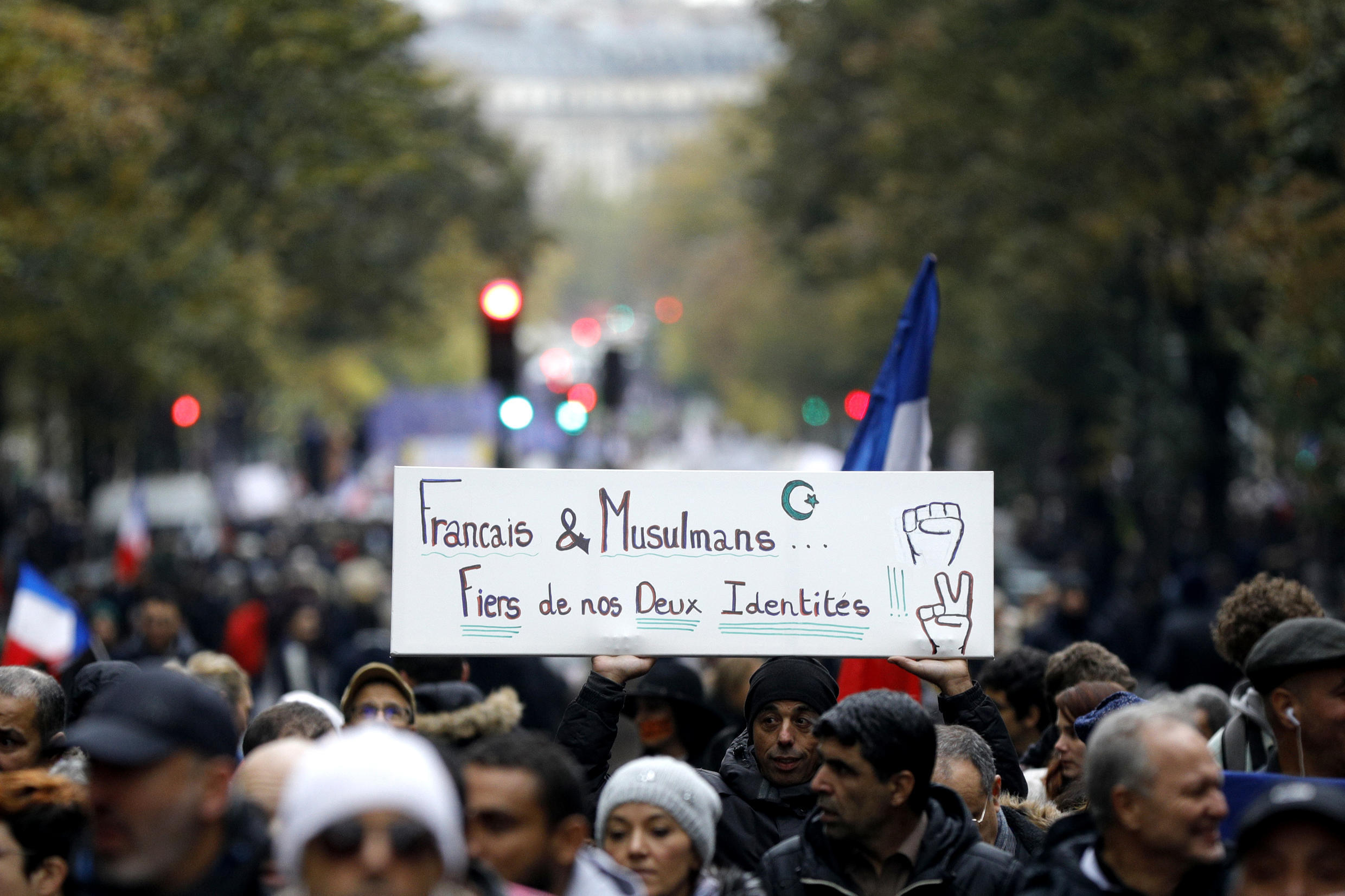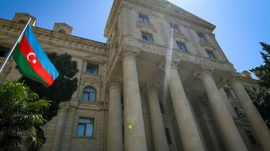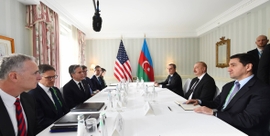President Ilham Aliyev spoke about the widespread Islamophobia in the Western countries as he addressed the "Embracing Diversity: Tackling Islamophobia in 2024" international conference in Baku last week.
President Aliyev said Islamophobia has become integrated into the state policies of numerous Western countries, who account for 80 percent of all the manifestations of Islamophobia observed around the world in 2023.
“In some European countries where Islamophobia has skyrocketed and been promoted as an official ideology, such insulting actions as the burning of our holy book of Quran and publishing caricatures of the Prophet Mohammad, are presented as the freedom of speech. France, along its traditional neocolonialism policy, is pursuing a policy of open pressure and discrimination, staging various Islamophobic campaigns,” he stated.
President Aliyev blamed France for its deliberate efforts to disguise legislative acts and political decisions that exclusively target Muslims to limit their rights and freedoms as secularism. According to him, mosques, Muslim community centers and cemeteries in France are desecrated in one way or another, and Muslim citizens endure oppression.
“Instead of combatting these manifestations that insult the feelings of the Muslims and holding the perpetrators accountable, the governments of those countries are inflaming the Islamophobic sentiments, encouraging the persecution of Muslims and aiming to keep these subjects high on the agenda … In the 21st century there must be no place for Islamophobia, xenophobia, or racism,” the president said.
In France, home to an estimated 7 million Muslims, constituting about 10% of its population, the rise of Islamophobia has significantly affected the social and institutional treatment of the Muslim community. This community's size surpasses that of many European countries, yet it reportedly faces considerable discrimination.
The French government's assertive policies, aiming to diminish religious influence in public life, have stigmatized religious expressions, particularly among Muslim women wearing hijabs. According to a report by a TRT Haber journalist, these policies include the 2004 ban on "ostentatious" religious symbols in schools and the 2010 extension to full-face veils in public spaces.
Recently, Education Minister Gabriel Attal announced a ban on abayas in schools, advocating for a religiously neutral educational environment, a sentiment supported by government spokesperson Olivier Véran, who views the abaya as a political statement beyond religious expression. This stance extends to the sports arena, where Amélie Oudéa-Castéra, the French Minister of Sport, stated that athletes would not wear headscarves during the 2024 Paris Olympics, reflecting France's approach.
These measures have been criticized for legitimizing Islamophobia and infringing on human rights, as highlighted by a 2018 UN call for France to reconsider its ban on full-face coverings, labeling it a human rights violation and criticizing the decision regarding the 2024 Olympics as discriminatory towards women.
The modern twist on the Islamophobia in France has its roots in the colonial legacy of the country. Franz Fanon, in his 1959 work "A Dying Colonialism," highlighted the significance of controlling Muslim women's attire as a central element of the French colonial agenda in Algeria, noting that the French aimed to strip away the people's uniqueness by mandating Muslim women to unveil. This strategy, according to Fanon, was driven by the colonial authorities' directive to dismantle any form of existence that might reflect a national identity, focusing particularly on the veil as it symbolized the status of Algerian women.
This historical approach to controlling the attire of Muslim women has seemingly extended into contemporary France, where the government's policies reflect a similar obsession with regulating the Muslim community's expressions of identity. This regulation begins early for Muslim girls, marking their initial engagement with public spaces such as schools, as a continuation of the colonial practice of exerting control over Muslim women's dress to assert dominance and erode cultural identity.
In 2023, high-profile incidents in Europe, such as Danish far-right politician Rasmus Paludan's Quran burnings in front of Türkiye's embassies in Stockholm and Copenhagen in January, and his subsequent actions in Malmo, Norrkoping, and Jonkoping during the Easter holidays in April, have exacerbated tensions.
Similarly, Salwan Momika, of Iraqi origin, burned the Quran under police protection outside the Stockholm Mosque on June 28, coinciding with Eid al-Adha's first day.
The UN Human Rights Council has highlighted that such provocations fuel hate speech and discrimination, announcing plans to address religious hate actions more thoroughly in upcoming sessions.







 U.S. Secretary of State Antony Blinken reiterated Washington’s unwavering support for the ongoing peace process between Azerbaijan and Armenia in a...
U.S. Secretary of State Antony Blinken reiterated Washington’s unwavering support for the ongoing peace process between Azerbaijan and Armenia in a...
 The Iranian and Cuban transport ministers have discussed expanding maritime and air transportation cooperation.
The Iranian and Cuban transport ministers have discussed expanding maritime and air transportation cooperation.
 Kyrgyzstan has joined the extensive reconstruction efforts in the Karabakh region of Azerbaijan, after a series of mega initiatives were launched b...
Kyrgyzstan has joined the extensive reconstruction efforts in the Karabakh region of Azerbaijan, after a series of mega initiatives were launched b...
 Iran is moving to fortify its eastern border with Afghanistan in a bid to fight illegal migration and drug trafficking, along with enhancing security.
Iran is moving to fortify its eastern border with Afghanistan in a bid to fight illegal migration and drug trafficking, along with enhancing security.



